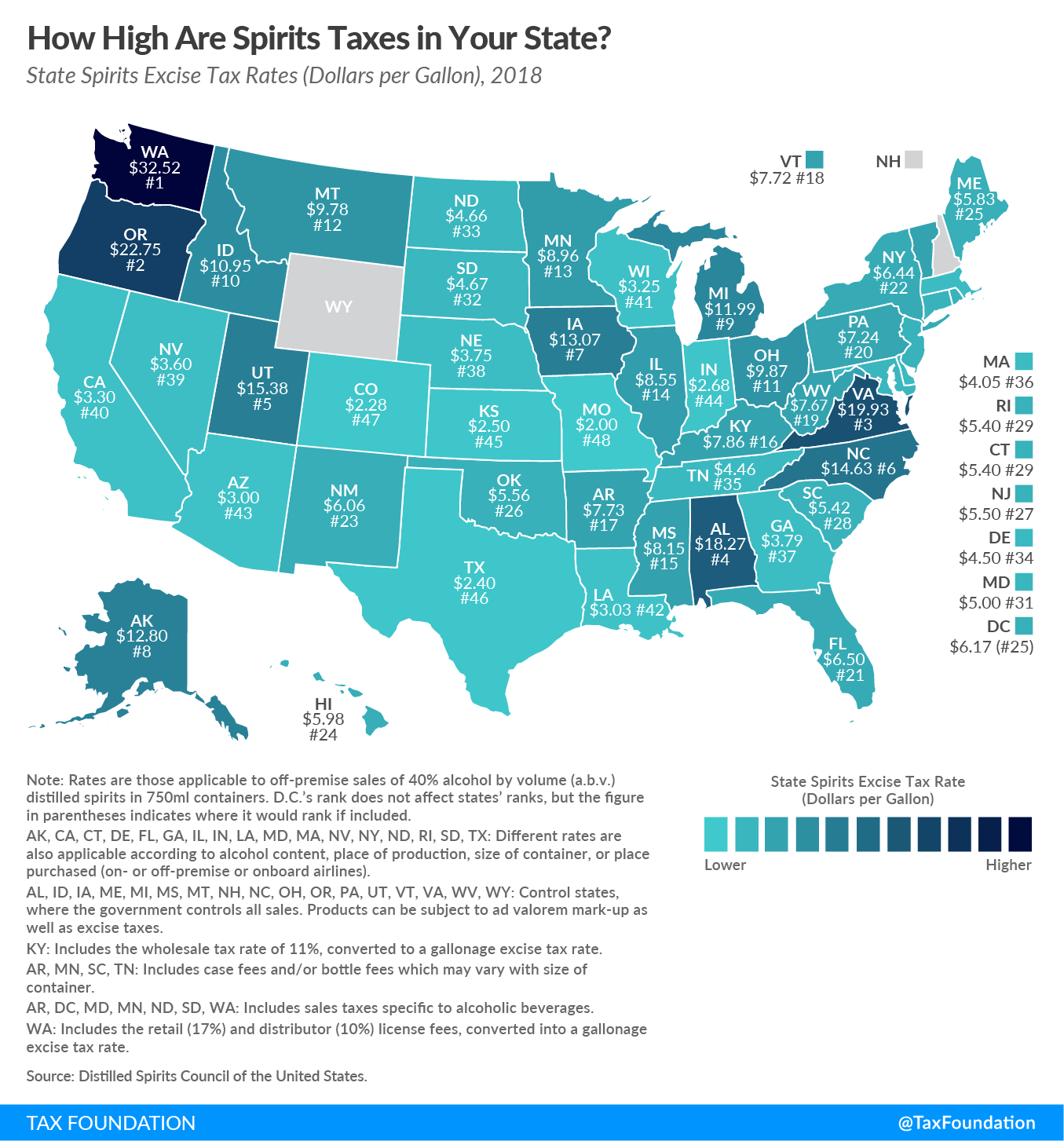Compared to taxA tax is a mandatory payment or charge collected by local, state, and national governments from individuals or businesses to cover the costs of general government services, goods, and activities. es on alcoholic beverages such as wine and beer, distilled spirits are taxed at much higher rates across the states, ostensibly to adjust for higher alcohol content. Today’s map shows how spirits excise taxAn excise tax is a tax imposed on a specific good or activity. Excise taxes are commonly levied on cigarettes, alcoholic beverages, soda, gasoline, insurance premiums, amusement activities, and betting, and typically make up a relatively small and volatile portion of state and local and, to a lesser extent, federal tax collections. es in your state compare.
Stay informed on the tax policies impacting you.
Subscribe to get insights from our trusted experts delivered straight to your inbox.
SubscribeData for this map comes from the Distilled Spirits Council of the United States. To allow for comparability across states, they use a methodology that calculates implied excise tax rates in those states with government monopoly sales.
Washington state has the highest spirits excise tax rate at $32.52 per gallon, followed by Oregon ($22.75), Virginia ($19.93), Alabama ($18.27), and Utah ($15.38). Spirits are taxed the least in Wyoming and New Hampshire, where government-run stores have set prices low enough that they are comparable to having no taxes on spirits. Following Wyoming and New Hampshire are Missouri ($2.00), Colorado ($2.28), Texas ($2.40), and Kansas ($2.50).
Like many excise taxes, the treatment of spirits varies widely across the states. Spirits excise rates may include a wholesale tax rate converted to a gallonage excise tax rate; case and/or bottle fees, which can vary based on size of container; retail and distributor license fees, converted into a gallonage excise tax rate; as well as additional sales taxA sales tax is levied on retail sales of goods and services and, ideally, should apply to all final consumption with few exemptions. Many governments exempt goods like groceries; base broadening, such as including groceries, could keep rates lower. A sales tax should exempt business-to-business transactions which, when taxed, cause tax pyramiding. es. (Note that this measure does not include general sales tax, only taxes in excess of the general sales tax rate.) Rates may also differ within states according to alcohol content, place of production, or place purchased (such as on- or off-premise or onboard airlines).
Share